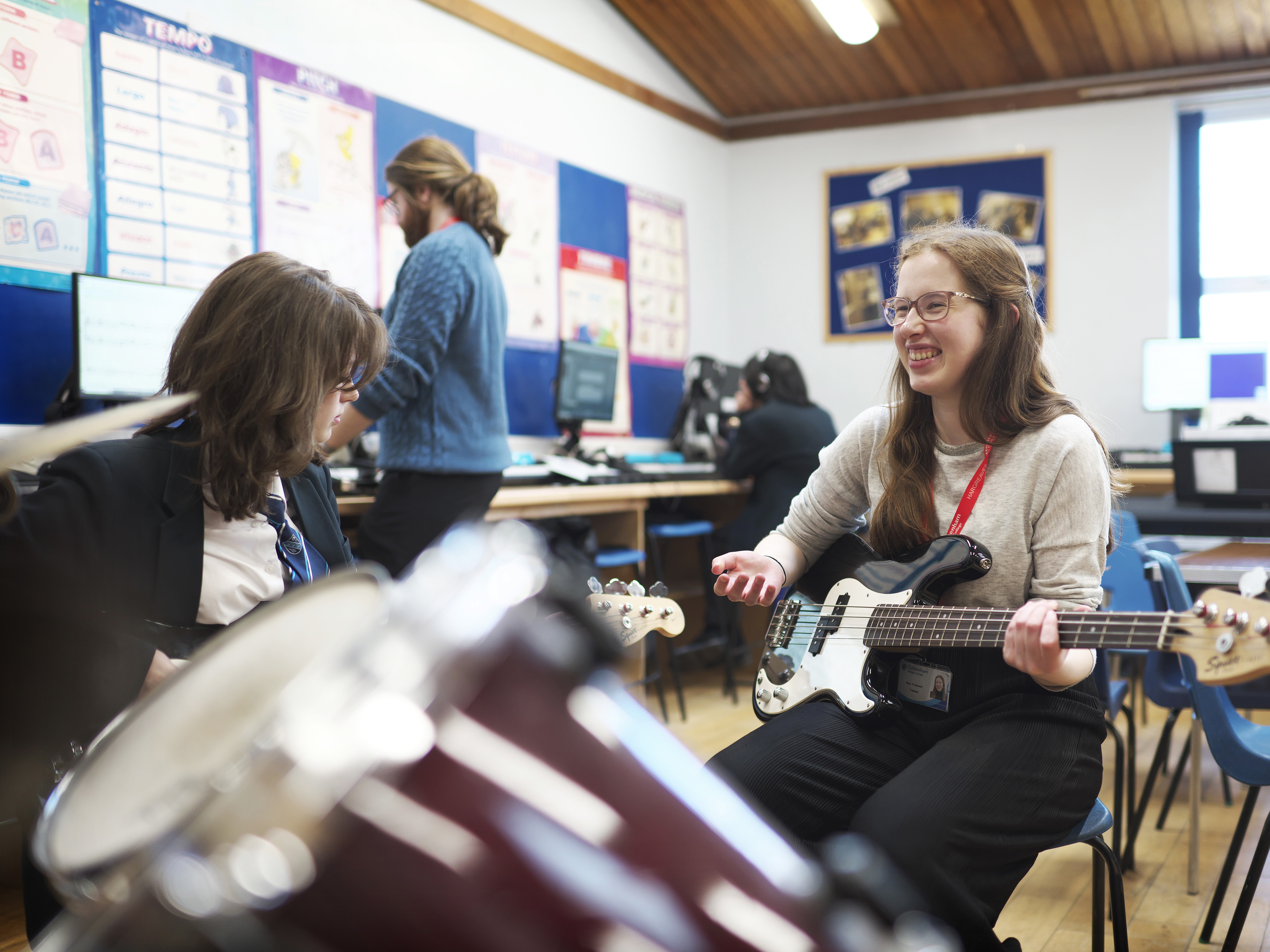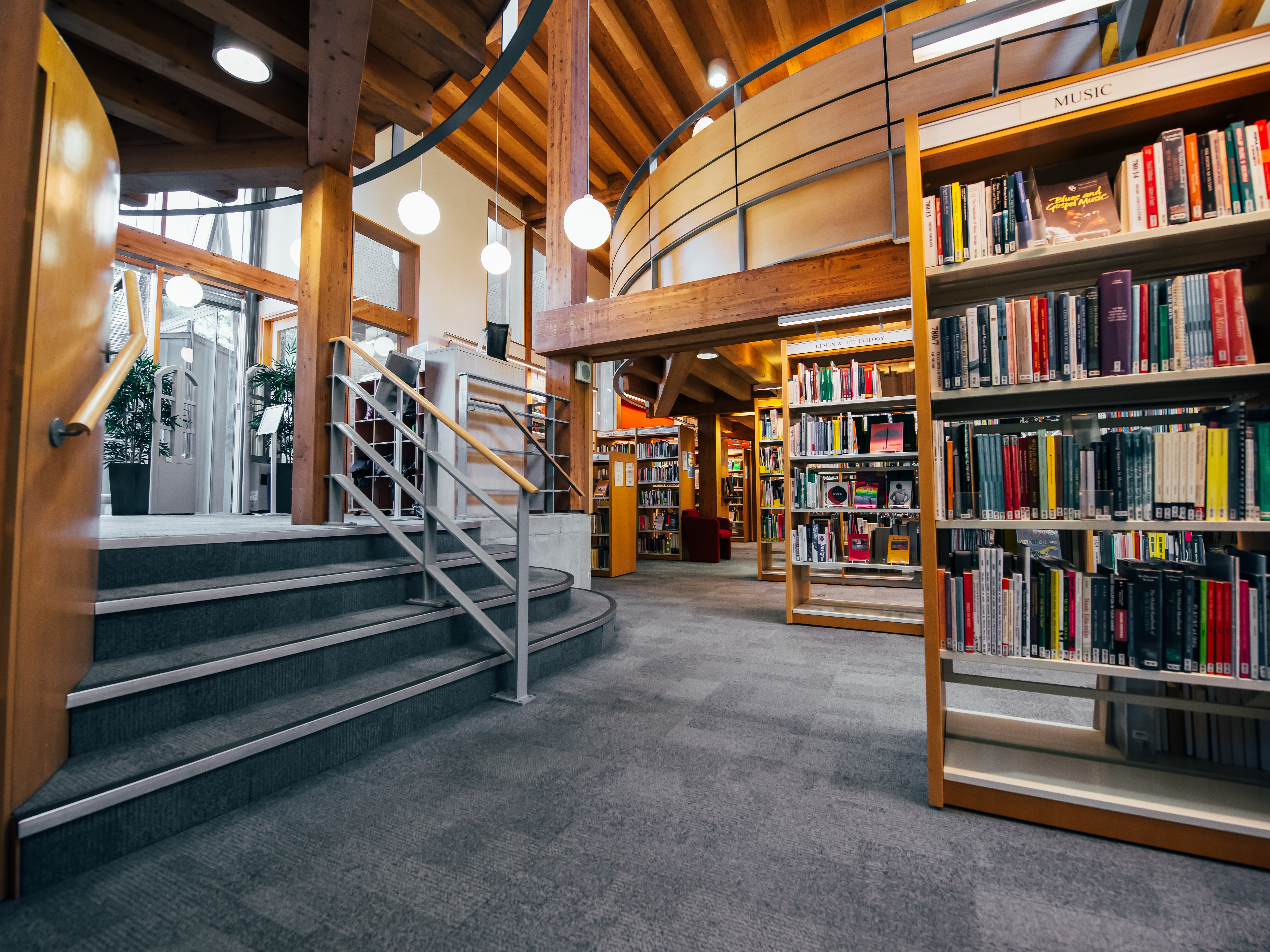Search and apply for our courses on the .gov website: University of Cambridge (C05)
The Music PGCE course is concerned with how we can enable everyone in our classrooms to make and encounter music well. Practical workshops help to develop our personal musical skills and leadership, for example in djembe drumming, improvising, playing samba, composing and singing. They are also part of our ongoing enquiry into how students learn to think in and about music, and how this develops over time. We explore a range of creative and practical approaches to the teaching of musical skills, concepts, attitudes and values that are engaging and socially inclusive. This may be exploring melody creation by improvising over backing tracks, finding ways to embed the development of analytical skills within the creation and rehearsal of a classroom arrangement of a GCSE set work, or devising approaches to encourage purposeful conversation.
We aim to empower PGCE students to help their students to become engaged and thinking musicians.
The Faculty of Education, in partnership with East Anglian Schools, is working to improve the quality of music teaching in secondary schools. By placing the practice of music at the heart of the course in Faculty and in school, PGCE students have every opportunity to develop as musicians as well as music teachers.
Do you want to be part of this enterprise and become an excellent music teacher?

Who is this course for?
You will need to be:
- personally and musically flexible
- bounding with ideas and initiative
- willing to learn new musical skills and adapt existing ones
- analytical and reflective
You will have a sound working knowledge of current music educational practice as observable in state secondary schools through recent experience and know yourself to be able to relate well to people of all ages.
How will I study it?
Izzi:
'The course is structured so that PGCE students gradually take on more time and responsibility in school placements, alongside theoretical learning and pedagogical skill-sharing in university settings. Placements are in two contrasting schools (regarding pupil demographic, school ethos and location), one throughout Michaelmas and one throughout Lent/Easter terms. In school, each PGCE student is attached to a mentor in their department who meets with them weekly, sets targets, and gives feedback and support. I was very well supported by my school mentors throughout, ensuring that I felt assured but was constantly challenged, leading me from nervously delivering a 5-minute activity to confidently taking responsibility for several classes for full terms. Whilst on longer blocks of school placement, the university PGCE staff were always on hand for extra support and advice too, which made the whole process much more smooth and academically well-rounded.'

Advice for applicants
We recommend, if possible, that you spend some time in school observing and/or participating in music lessons to help you decide if music teaching is right for you. Those considering your application will be looking for evidence of commitment to, and enthusiasm for, working with children and young people, and may ask you to reflect on your classroom experiences. You should consider how you might demonstrate your commitment in your personal statement and be prepared to discuss during an interview.
How will this course prepare me for positions of leadership?
Rachel: 'The course spots potential and nurtures it, maintaining the academic rigour you would expect from a course at Cambridge whilst ensuring those from a wide variety of backgrounds can benefit. Most importantly of all, the course ensures that music is at the heart of the course - making sure that each year graduates go out to schools across the country as confident, creative teachers ready to lead music making of the highest quality. I feel incredibly fortunate to have trained at Cambridge. Ofsted have said that my lessons are outstanding, and when that's the case I know it has a lot to do with the training that I received.'

How does this fit in with the MEd?
Former PGCE student Callum Bates writes: 'Continuing on to gain a master’s qualification is a natural step for many educators, especially those who wish to continuously further their own practice. As part of the PGCE course, you will learn to critically analyse and consider the purposes and methods of music education. You will also begin to innovate your own pedagogy under the expert guidance of a subject-specific mentor and world-leading academics within the faculty.
The MEd allows you to continue to innovate your pedagogy at a higher academic level and facilitates you to position yourself as a practitioner-researcher within the wider field of education. By engaging with further professional and academic literature, research, practice, and policy, there is a natural sense of progression from PGCE to MEd level. The specialist teaching and supervision that you will receive on the Secondary Music PGCE course will provoke you to become a naturally reflective and reflexive practitioner who is able to proficiently tackle philosophical and pragmatic educational issues.A major part of the Cambridge PGCE course is the final research project in which you will rigorously investigate a contextualised area of your own practice. The PGCE and the MEd encourage you to be critical, analytical and open-minded, so that you can truly do the best by the most important stakeholders in any educational context: the students themselves.'
For more information, visit the Master of Education (MEd) page.
